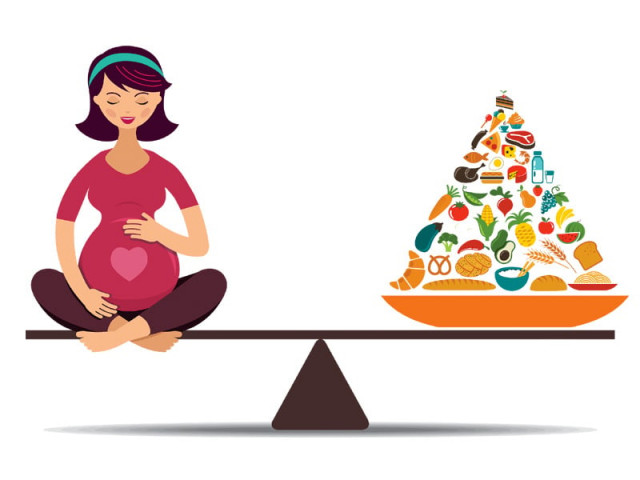Fasting in Ramazan: A balancing act
The challenge of fasting for pregnant and nursing women.

Fasting in Ramazan: A balancing act
There are many misconceptions women have regarding fasting and how it can adversely impact their infants and foetuses. Many expecting and lactating mothers are quite vary of fasting during this phase in their lives which discourages them from it. Housewife and mother-of-four Bisma Shahid, however, alleviates these false notions. “Ramadan never concerned me during my pregnancy or nursing days,” she shares. “My youngest child is now a year and half but refuses to eat anything I try to feed her. Hence, she is entirely dependent upon nursing. Yet, I do not intend to skip any of my fasts so long as I am eating enough for her to remain healthy.”
Fortunately, there are some measures mothers can take to keep all their fasts without compromising on their health and that of their children. Sana Azfar, a consultant nutritionist at Imam Clinic Karachi, suggests some guidelines women can follow in order to maintain their required intake of proteins, irons and calcium during Ramadan. “Both pregnant and nursing women must increase their consumption of liquids during the month,” she says. “They should take at least two dates each, both at Sehri and Iftaar and once they have opened their fast, they should wait until later to eat dinner. Late dinners can help control indigestion and acidity in pregnant women.” Additionally, Sana recommends drinking a lot of water and eating fruits which will maintain the water level among lactating mothers and help them sustain their fast.
Bisma, who feeds her daughter at least four times a day, follows Sana’s advice and indulges in lots of milk, juices and water before and after her fasts. More importantly, however, she advises women not to reduce the hours of lactation during Ramadan. “My 11 years worth of parenting experience has taught me that mothers shouldn’t stop or reduce nursing while fasting. It leads to related health problems.”
According to Dr Tayyaba Arshad, a gynaecologist Nargis Hospital and Maternity Home, most patients prefer to continue fasting. “The only time I would advise a mother to skip her fast is when and if the foetus or baby is suffering from Intrauterine Growth Restrictions (IUGR), a condition wherein the baby is smaller than it should be,” she says. In such cases, the baby requires as much nutrition as possible and fasting will only hinder that. “Mothers suffering from diabetes, high or low blood pressure and Urinary Tract Infections (UTI) should also avoid fasting as these problems require regular medication,” she adds.
Nonetheless, it is mostly anaemic women or those with a history of health issues, like multiple miscarriages, who are likely to face complications during pregnancy. “I would recommend two boiled eggs or wheat porridge for Sehri to fulfil the daily protein intake,” says Sana. “If one does not feel hungry, for hormonal or any other reasons, they should consume liquids to regulate sugar levels. Dinner should include a chappati for iron. Also, mothers should take nutritional supplements to boost their well-being,” she adds. Dr Tayyaba prescribes 10 microgrammes of Vitamin D for gestation and lactation, two times a day. Both experts also emphasise on drinking a lot of water to avoid dehydration.
Mariam Arsalan, a 26-year-old mother, highlights the importance of eating cautiously during Ramadan. “I kept all my fasts during my first pregnancy and managed to get past without any complications,” she shares. “I focused on healthy foods like fruits and green vegetables and cut down my daily household chores to avoid stress.” This Ramadan, Mariam is in the midst of her second pregnancy and following the same diet, coupled with bed rest and 30 minutes of brisk walking daily.
Mothers should, therefore, make an informed decision when it comes to fasting. Consulting a doctor beforehand is imperative so that any unknown infections or health issues can be detected and treated early on. While it is perfectly alright to fast during pregnancy or nursing, one must take all necessary measures to ensure that the health of both mother and child is not compromised.
Published in The Express Tribune, Ms T, June 29th, 2014.



















COMMENTS
Comments are moderated and generally will be posted if they are on-topic and not abusive.
For more information, please see our Comments FAQ